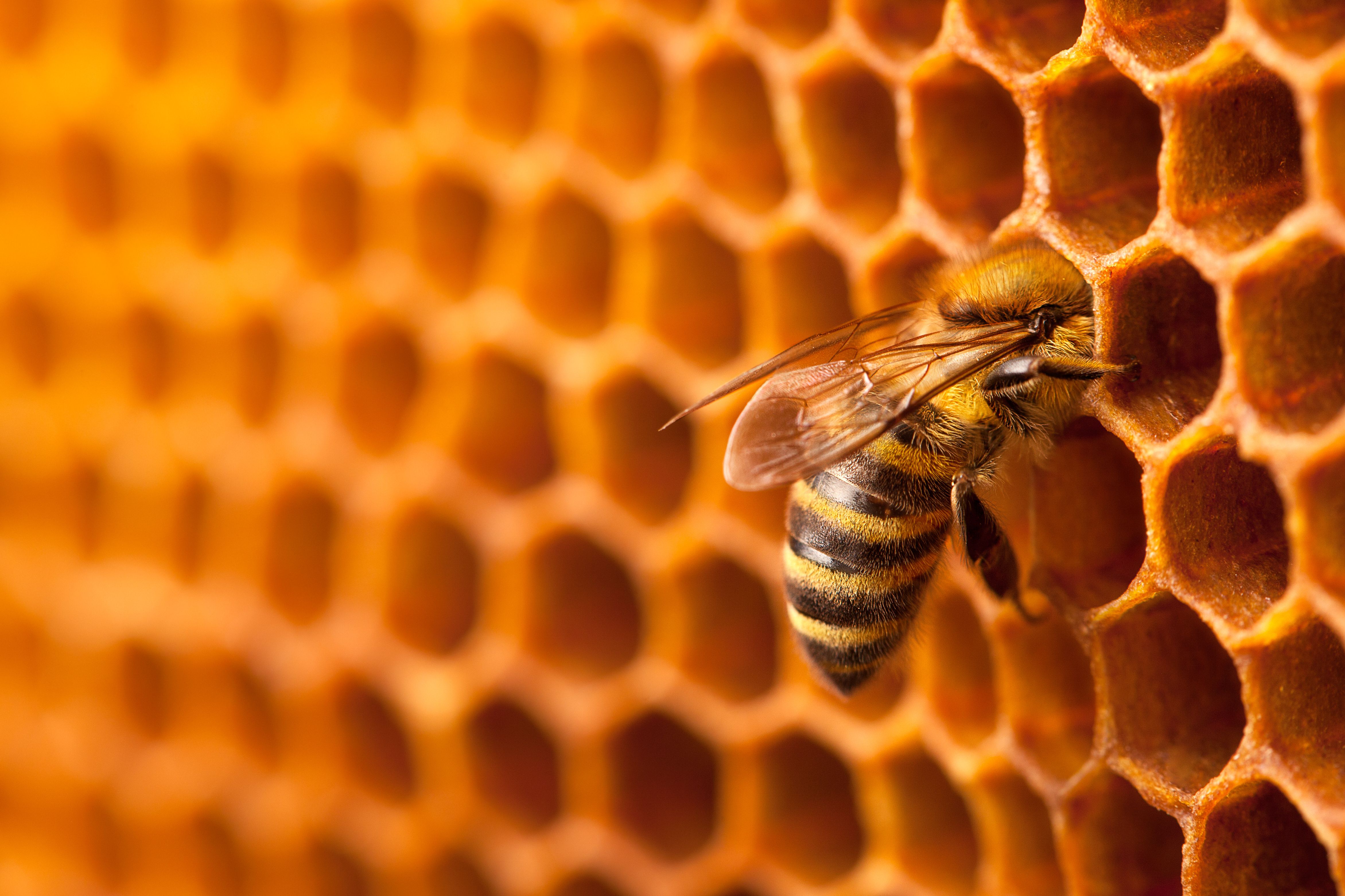Oregano essential oils: saying arrivederci to parasitic disease on honeybees?
Beekeepers have already observed mite resistance to synthetic acaricides.
Credit: BigBlue Studio/Adobe Stock

Honeybees have faced increasing threats and one of the most pressing is varroosis, a parasitic disease caused by the Varroa destructor mite. Hives affected by high-grade viral infestations are at risk of colony collapse and acute paralysis or deformed wings among the hives’ bees in addition to a host of other issues. To protect and control mite populations, beekeepers have turned to medicinal products such as synthetic acaricides and organic acids.
Unfortunately, these treatment options have some harmful disadvantages. Beekeepers have already observed mite resistance to synthetic acaricides. Bees and drones have been shown to have shorter lifespans, fertility reduction, behavioral changes, and increased mortality following use of these treatments. Further, some chemicals can be found in the beehive products and accumulate to cause downstream negative effects for the hive.
Finding a better alternative to control V. destructor—that is, finding options that lack detrimental effects—is imperative.
Essential oils have shown promising microbial, antifungal, antiparasitic properties. Additionally, they are more environmentally friendly and are less likely to cause resistance in the mite population than some other treatment options.
A team of investigators from Italy have published a study in Veterinary Sciences that assessed the contact toxicity, fumigation efficacy, and repellent effect of origanum heracleoticum (oregano) essential oil against V. destructor mites. Green veterinary pharmacology like this is a growing movement globally.
Using contact and fumigation methods, the investigators found that the oregano essential oil was effective against adult female Varroa mites, with more favorable results from higher exposure time and concentration. They evaluated the mortality rate 1 hour after exposure, reaching 90.9% mortality.
But mites had no preference for wax treated with oregano essential oil versus wax that was untreated. The researchers indicate that for this reason, they observed no repellent activity for the oregano essential oil against the mites.
Overall, this study provided additional evidence of the importance of essential oils as a possible method for control of varroosis in bee populations. The most effective method of administration of the essential oils needs to be determined, so further study is needed.
Aileen Yum-Chan is a 2022 graduate of the University of Connecticut School of Pharmacy in Storrs.
Reference
Castagna F, Bava R, Piras C, et al. Green Veterinary Pharmacology for Honeybee Welfare and Health: Origanum heracleoticum L. (Lamiaceae) Essential Oil for the Control of the Apis mellifera Varroatosis. Vet Sci. 2022;9(3):124. doi:10.3390/vetsci9030124